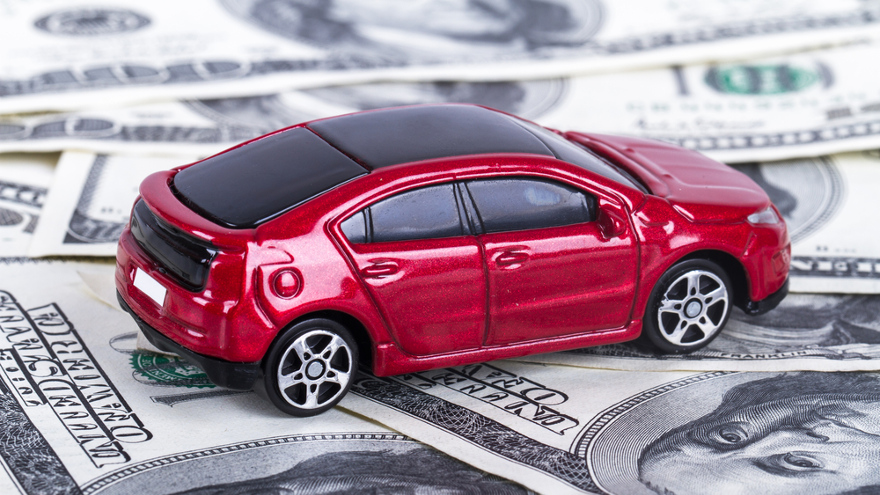S&P Global Ratings examines auto ABS ratings after Hurricane Ian

By subscribing, you agree to receive communications from Auto Remarketing and our partners in accordance with our Privacy Policy. We may share your information with select partners and sponsors who may contact you about their products and services. You may unsubscribe at any time.
S&P Global Ratings acknowledged this week that it is too early to assess the full impact of Hurricane Ian on rated U.S. auto asset-backed securities (ABS).
However, firm analysts currently believe that rating downgrades are unlikely, based on their assessment of those transactions with a meaningful concentration in Florida.
“We did, however, identify 22 at-risk auto loan securitizations, defined as having approximately 20% or more of the closing collateral pool balance associated with obligors in Florida,” S&P Global Ratings experts said in a news release. “Among these 22 transactions, which have an aggregate pool balance of about $8.8 billion, the weighted average exposure to Florida was 47%.
The firm pointed out that 16 of the transactions are collateralized by prime credit quality assets, while the remaining six are backed by subprime collateral.
S&P Global Ratings explained how it arrived at those assertions.
“Given our discussions with several issuers this week, and from what we learned from the effects of hurricanes Irma and Harvey in 2017, servicers will likely grant payment deferrals to those who have been affected by the hurricanes and live in FEMA-affected areas, per the companies’ natural disaster collection policies,” analysts said.
Subscribe to Auto Remarketing to stay informed and stay ahead.
By subscribing, you agree to receive communications from Auto Remarketing and our partners in accordance with our Privacy Policy. We may share your information with select partners and sponsors who may contact you about their products and services. You may unsubscribe at any time.
“As such, there is likely to be a temporary increase in delinquencies and extensions from September to November for those transactions with a significant concentration in the FEMA-declared areas of Florida,” they continued.
“Because the transactions have reserve accounts, and all collections, including principal, are available to pay bond interest, liquidity risk is largely mitigated. Further, one to several months of cushion are added when testing for legal final maturity dates,” analysts added.
S&P Global Ratings also mentioned that seasoned prime and subprime transactions have robust structures and credit enhancement buildups, which shield them from extensive losses.
“At the time of origination, many sponsors of auto loan ABS require that the obligors of the financed vehicles have comprehensive vehicle insurance, which typically covers flood damage,” analysts said. “There is a risk that some borrowers — especially those with poor credit quality — could cancel or fail to renew their insurance policies after closing.
“To address this risk, some lenders force-place insurance on the underlying vehicles (usually at the expense of the borrower),” analysts continued. “We expect prime obligors with strong credit profiles to maintain a high degree of insurance coverage, further mitigating potential losses in the 16 at-risk prime auto ABS transactions.
“Further, some borrowers (particularly in the subprime space) have guaranteed asset protection insurance, which pays the lender the difference between the financed amount and the insurance proceeds,” analysts went on to say.
Although Hurricane Irma destroyed up to 400,000 vehicles in 2017, according to Cox Automotive, S&P Global Ratings said it did not cause any rating downgrades for any of the auto loan ABS transactions that the firm rated.
Still, S&P Global Ratings acknowledged that it is worth noting that Hurricane Irma primarily caused wind damage and, according to the U.S. Center for Disease Control, roughly 6.8 million people evacuated, often with their vehicles in tow.
“Hurricane Ian, on the other hand, primarily caused flood damage and, per current estimates from ABC News, only 2.5 million people received an evacuation order,” analysts said. “Floods generally cause greater damage to vehicles than do high winds. Because fewer people fled Hurricane Ian with their cars, the recent hurricane may have exposed more vehicles to damage than Irma did.”
“Lenders are still determining the degree of Ian’s impact on their Floridian borrowers and the extent of potential uninsured losses. Because our understanding of the scope of the damage evolves daily, we will continue to assess the situation, monitoring the at-risk auto loan ABS transactions and providing updates as warranted,” analysts went on to say.


